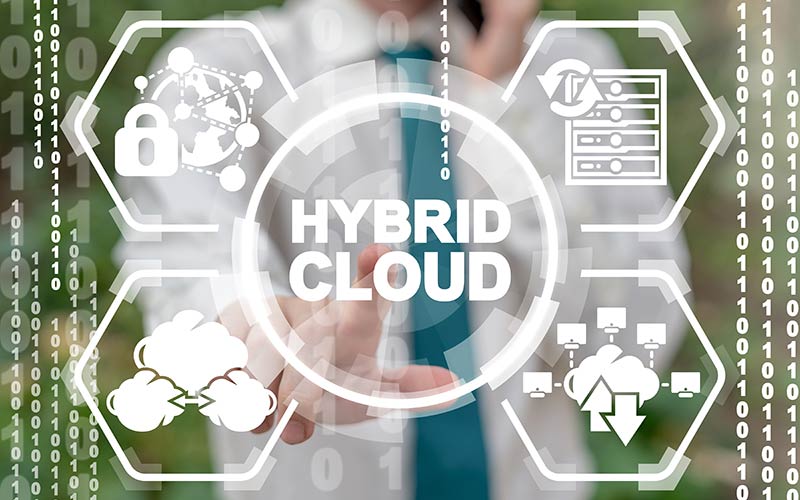What are IP Addresses? IP addresses are fundamental to the digital infrastructure of any business…

Finding The Perfect Hybrid Cloud Solution
When it comes to cloud services, businesses often face the challenge of finding the perfect balance between flexibility, scalability, and security. While public and private clouds offer unique advantages, many organizations have adopted hybrid cloud solutions to meet their diverse needs. In this blog post, we’ll delve into the hybrid cloud concept and explore how it provides flexibility and scalability for businesses seeking optimal cloud infrastructure.
Understanding Hybrid Cloud
A hybrid cloud is a computing environment combining public and private clouds, allowing organizations to leverage both benefits. It offers the flexibility to seamlessly integrate on-premises infrastructure with public cloud resources, creating a unified and cohesive cloud environment. With hybrid cloud solutions, businesses can choose where to deploy their workloads based on specific requirements, such as security, compliance, performance, and cost-effectiveness.
Flexibility with Hybrid Cloud
- Workload Placement: A hybrid cloud enables organizations to determine their workloads’ placement strategically. Sensitive and critical data can be kept on-premises or within a private cloud, ensuring compliance with regulatory requirements and providing enhanced data control. At the same time, non-sensitive workloads can be offloaded to the public cloud, leveraging its scalability and cost-efficiency.
- Data and Application Portability: Hybrid cloud solutions empower businesses to move applications and data seamlessly between public and private cloud environments. This portability allows organizations to adapt to changing business needs, take advantage of specialized services offered by public cloud providers, and optimize resource utilization based on demand.
- Bursting Capability: One of the key advantages of a hybrid cloud is the ability to scale resources quickly during periods of high demand. By seamlessly extending their private infrastructure with public cloud resources, businesses can ensure that their applications and services remain responsive even during peak traffic bursts.
Scalability with Hybrid Cloud
- Elasticity: A hybrid cloud approach provides elastic scalability, allowing businesses to scale resources up or down based on fluctuating workloads. Public cloud resources can be easily provisioned to handle sudden spikes in demand, providing a seamless user experience and ensuring performance and availability.
- Cost Optimization: With hybrid cloud solutions, organizations can optimize costs by leveraging the cost-effective scalability of the public cloud while maintaining essential workloads on-premises or in a private cloud. This flexibility allows businesses to strike a balance between cost efficiency and performance.
Security and Compliance
Hybrid cloud solutions offer enhanced security and compliance capabilities. Sensitive data and critical workloads can be kept within the private cloud or on-premises infrastructure, ensuring full control and meeting strict compliance requirements. Public cloud resources can be used for non-sensitive workloads, taking advantage of the robust security measures implemented by reputable cloud providers.
Hybrid cloud solutions offer businesses the best of both worlds, combining the adaptability of the public cloud with the control and security of private infrastructure. The ability to strategically place workloads, achieve scalability on-demand, and optimize costs makes hybrid cloud an attractive option for organizations seeking a flexible and scalable cloud infrastructure.


